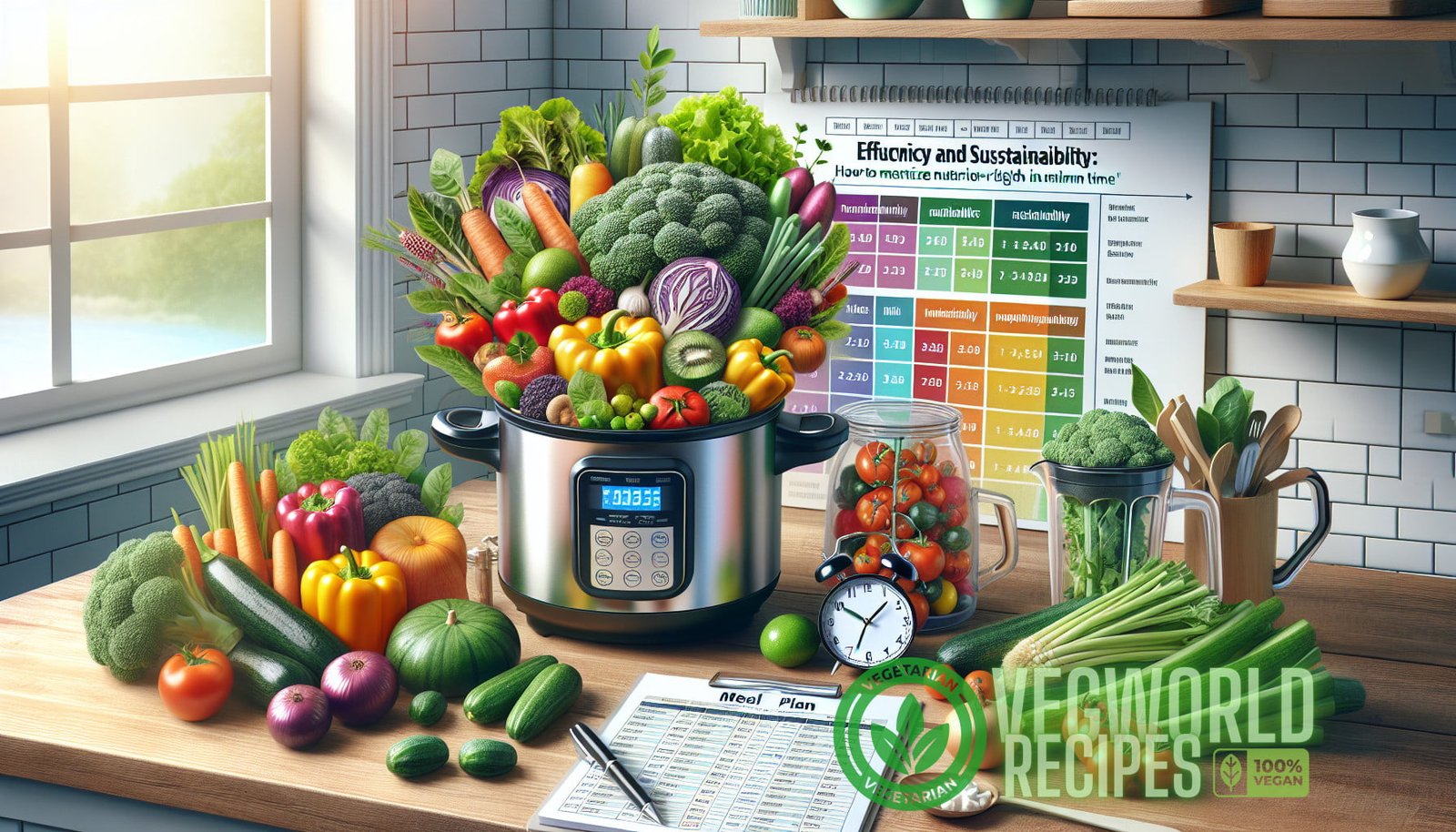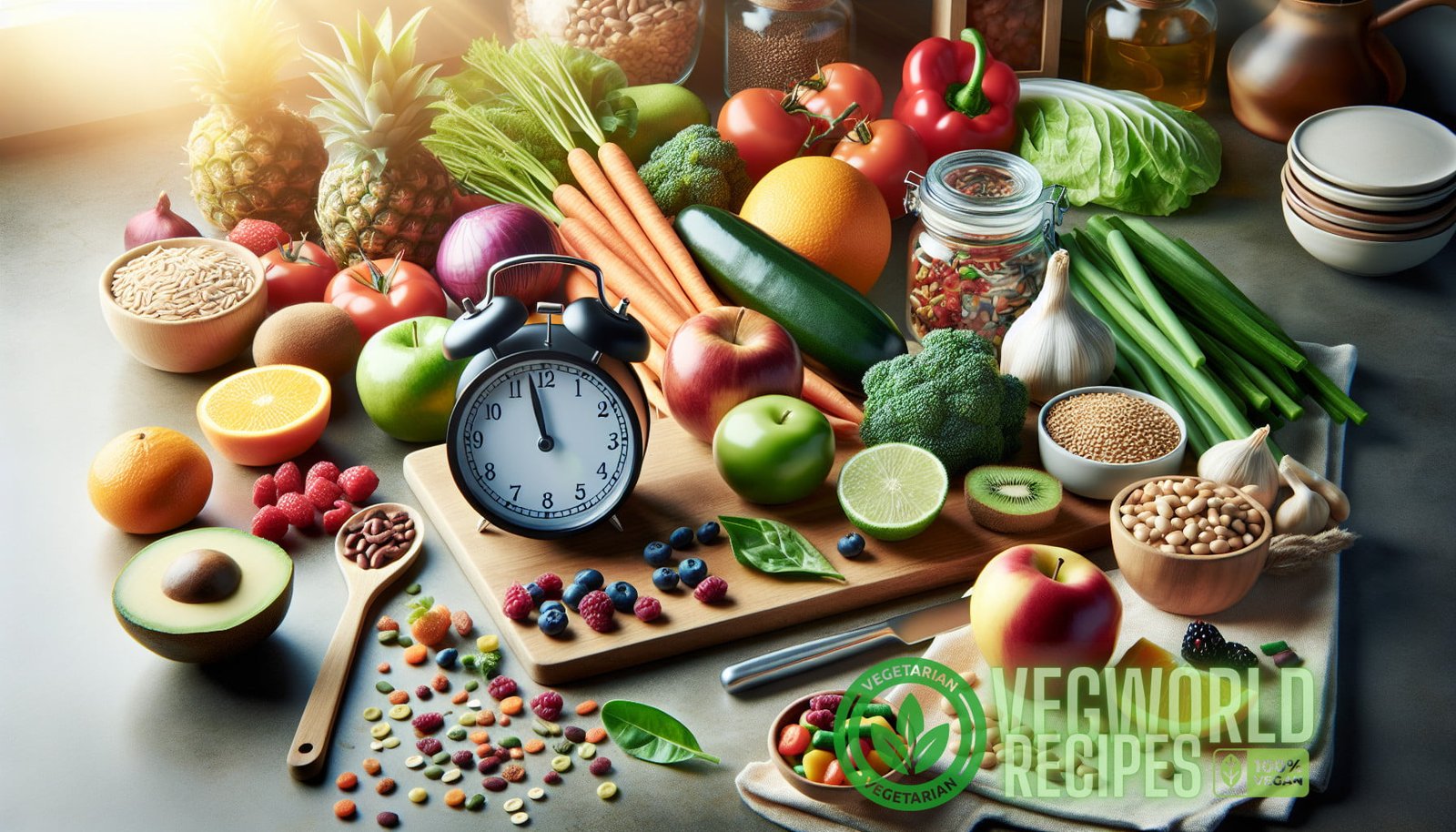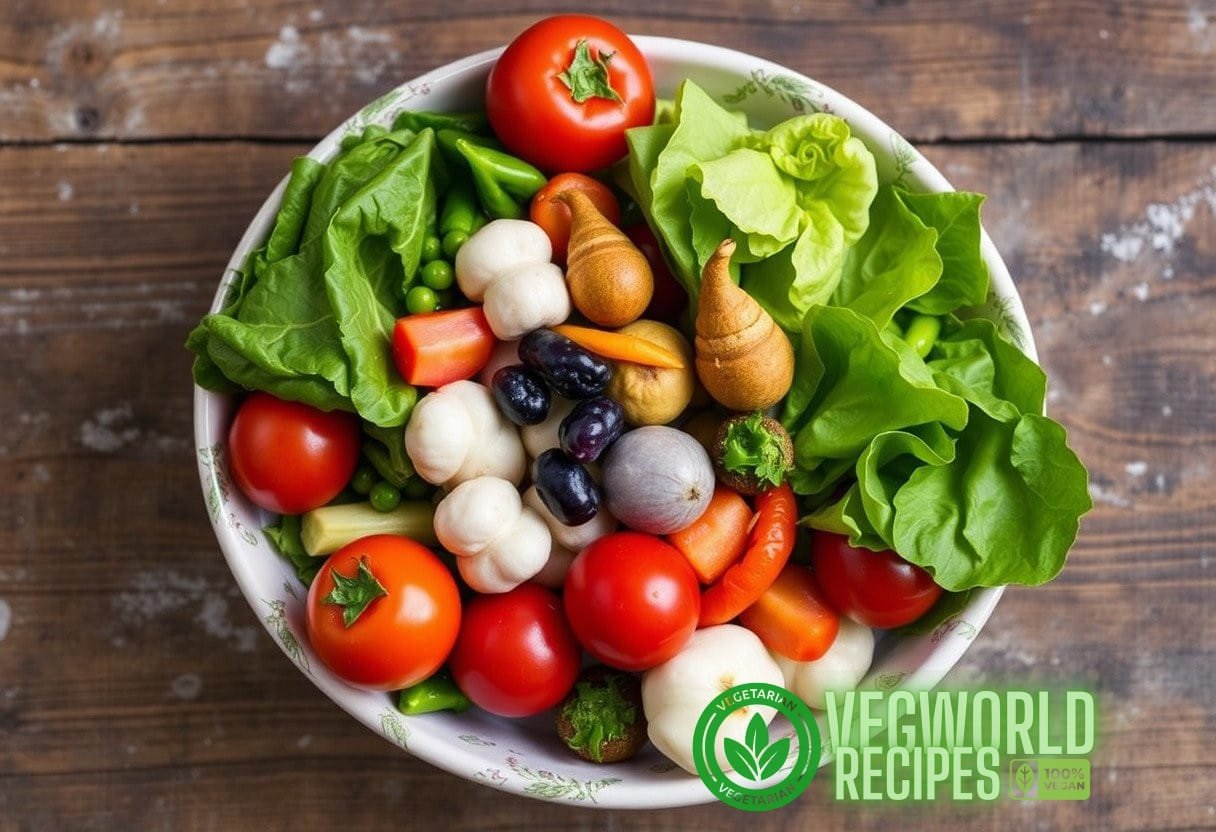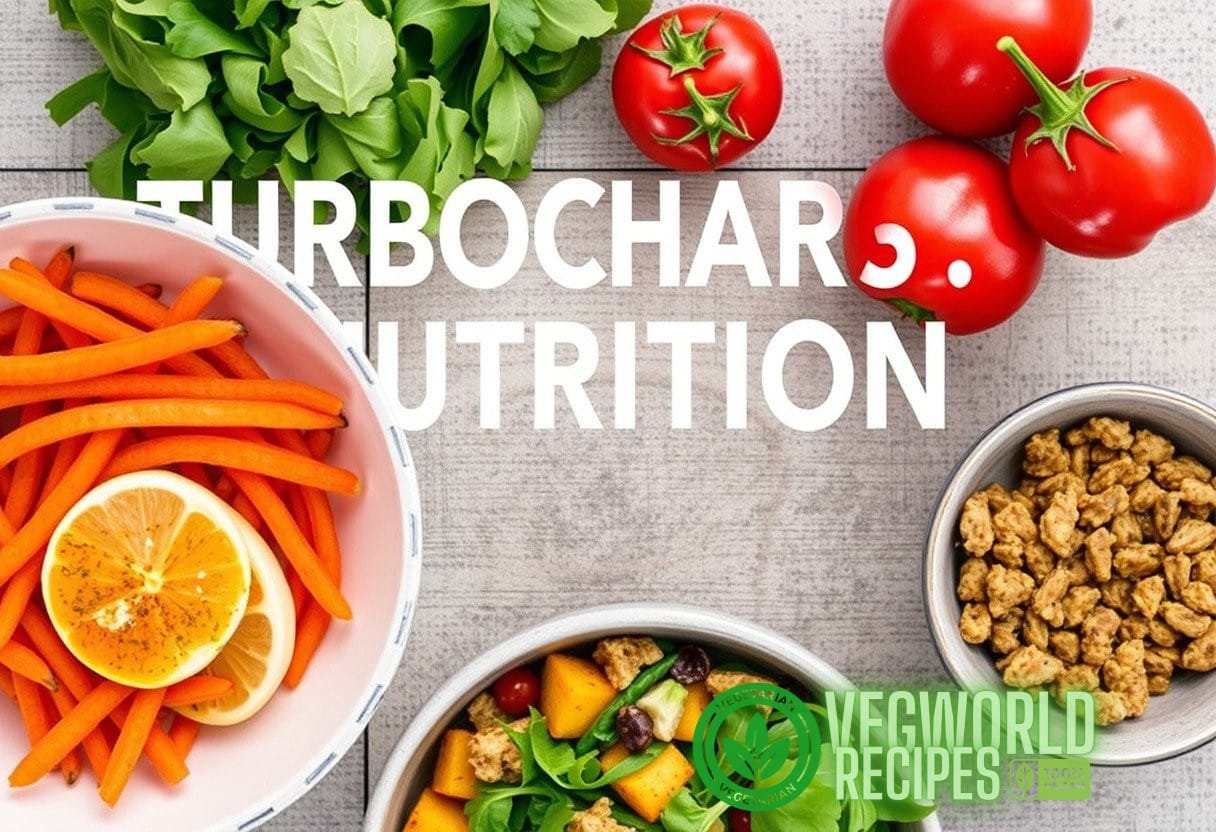Introduction
Efficiency and sustainability are two key factors to consider when it comes to preparing meals in today’s fast-paced world. With a growing number of people adopting vegetarian diets, it has become essential to find ways to maximize nutrient-rich vegetarian meals in minimal time. In this article, we will explore the concept of efficient and sustainable vegetarian cooking, providing tips and strategies to create fast and nutritious meals that will delight your taste buds.
Why Choose Vegetarian Meals?
Before diving into the specifics of efficient vegetarian cooking, let’s first understand the benefits of choosing vegetarian meals. A vegetarian diet, when well-balanced, can provide all the essential nutrients your body needs while reducing your carbon footprint and promoting a healthier lifestyle. Here are some reasons why you might consider incorporating more vegetarian meals into your diet:
- Reduced risk of chronic diseases: Studies have shown that vegetarian diets can lower the risk of heart disease, obesity, hypertension, and certain types of cancer.
- Environmental sustainability: Livestock production is a significant contributor to greenhouse gas emissions and deforestation. By reducing or eliminating meat consumption, you can help reduce your impact on the environment.
- Improved digestion: Plant-based diets are rich in fiber, which promotes healthy digestion and can reduce the risk of constipation, diverticulosis, and other digestive issues.
- Weight management: Vegetarian diets tend to be lower in calories and saturated fats, making them beneficial for weight management and maintaining a healthy body weight.
The Time-Efficiency Challenge
While the benefits of vegetarian meals are clear, many people still struggle with finding the time to prepare them. Busy schedules and limited time in the kitchen often lead to relying on convenience foods or skipping meals altogether. However, with the right strategies and a bit of planning, it is possible to create delicious and nutritious vegetarian meals without spending hours in the kitchen. Let’s explore some tips and techniques to help you overcome the time-efficiency challenge:
Meal Planning and Batch Cooking
One of the best ways to save time in the kitchen is through meal planning and batch cooking. By dedicating a small portion of your time each week to plan and prepare meals in advance, you can significantly reduce the time spent cooking on a daily basis. Here’s how you can incorporate meal planning and batch cooking into your routine:
- Plan your meals: Start by mapping out your weekly meals and creating a shopping list accordingly. This will help you stay organized and ensure that you have all the necessary ingredients on hand.
- Prep ingredients in advance: On a designated day, spend some time prepping ingredients such as chopping vegetables, cooking grains, and soaking legumes. These prepped ingredients can be stored in the refrigerator for a few days, ready to be used in your meals throughout the week.
- Cook in batches: Prepare larger quantities of soups, stews, and sauces that can be divided into meal-sized portions and frozen for later use. This way, you’ll have ready-made meals that can be quickly reheated and enjoyed when you don’t have time to cook from scratch.
Meal planning and batch cooking not only save time, but they also help reduce food waste by using up ingredients efficiently. By having a plan in place, you’re less likely to resort to takeout or unhealthy convenience foods when hunger strikes.
Quick and Easy Ingredients
When it comes to efficiency in the kitchen, choosing ingredients that are quick and easy to prepare is key. Here are some nutrient-rich ingredients that require minimal time and effort to cook:

- Leafy greens: Spinach, kale, and Swiss chard are packed with vitamins and minerals. They can be quickly sautéed or added to salads and smoothies.
- Quinoa: This high-protein grain cooks in just 15 minutes and serves as a great base for salads, stir-fries, or Buddha bowls.
- Legumes: Canned beans, lentils, and chickpeas are convenient sources of plant-based protein. They can be easily incorporated into soups, stews, and salads.
- Frozen fruits and vegetables: Frozen fruits and vegetables are often just as nutritious as fresh ones and require no prep work. They can be added to smoothies, stir-fries, or a quick sauté.
By keeping these quick and easy ingredients on hand, you can whip up a nutritious meal in no time.
Use of Appliances and Tools
Efficient cooking can be facilitated by using appliances and tools that save time and streamline the process. Here are some kitchen gadgets that can make meal preparation quicker and easier:
- Instant Pot: This versatile appliance can significantly reduce cooking time for grains, legumes, soups, and stews. It relies on pressure cooking to speed up the process while retaining the nutrients in your food.
- Food processor: From chopping vegetables to making nut butters, a food processor can handle a wide range of tasks in a fraction of the time it would take to do them by hand.
- Mandoline slicer: This tool allows you to slice vegetables quickly and uniformly, saving you time and ensuring even cooking.
Investing in some time-saving appliances and tools can make a big difference in your efficiency in the kitchen.
Unlocking Time-Efficient Nutrient-Rich Vegetarian Lunches: A Scientific Analysis
For a detailed analysis of time-efficient nutrient-rich vegetarian lunches, please refer to an article available at https://vegworldrecipes.fun/quick-meals/unlocking-time-efficient-nutrient-rich-vegetarian-lunches-a-scientific-analysis/. This comprehensive scientific study dives deep into the topic and provides valuable insights and tips for creating quick and nutritious vegetarian lunches.
Delicious and Quick Vegetarian Lunch Recipes for Work or School
If you’re looking for specific recipe ideas for your vegetarian lunches, check out an article available at https://vegworldrecipes.fun/quick-meals/delicious-and-quick-vegetarian-lunch-recipes-for-work-or-school/. This article features a collection of mouth-watering and easy-to-make vegetarian lunch recipes that are perfect for busy individuals.
Conclusion
Efficiency and sustainability go hand in hand when it comes to maximizing nutrient-rich vegetarian meals in minimal time. By implementing strategies such as meal planning and batch cooking, choosing quick and easy ingredients, and utilizing time-saving appliances and tools, you can enjoy delicious and nutritious vegetarian meals without sacrificing precious time. With the right approach, vegetarian cooking can be both efficient and satisfying, contributing to a healthier you and a more sustainable planet.



